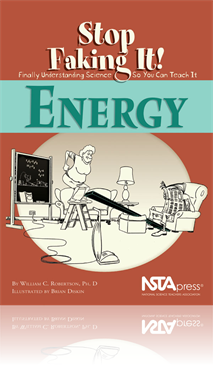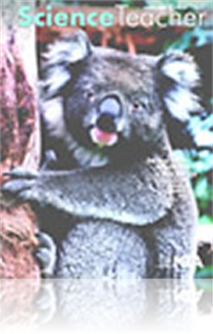All Resources
Book Chapter
Energy is such a common notion. We talk about it all the time. Should you buy energy-efficient windows? The country needs an energy policy. That little kid at the store who screaming at the top of his lungs sure has a lot of energy. This chapte...
Book Chapter
Up until now, we've been talking about things having a certain amount of energy and not about things gaining, losing, or changing their form of energy. We've already seen how energy can change, though. A marble at rest at the top of a ramp has a ce...
Book Chapter
It Slices, It Dices--It Gathers Dust!
In case you can't tell from the title, this chapter is about machines. No, not salad shooters and makers of julienne fries but rather everyday things such as scissors and bottle openers and car jacks. These are known as simple machines, and they in...
Book Chapter
Temp-a-chur and Thermal Energy
In this chapter you will learn the basic concept of temperature and what it means for one thing to be hotter than another. The hotter something is, the faster its molecules are moving. And that means that a hot collections of molecules has more kin...
Book Chapter
Close the Door--You're Letting the Cold In!
Actually no, you aren't letting the cold in when you leave the door open in winter. That's a common misconception that will be gently put to rest in this chapter. There will, however, be a discussion of the tranfer of energy that makes things hott...
Book Chapter
Energy transformations take place all over the Earth without humans ever getting involved. Being the control freaks that we are, though, we spend a lot of time trying to direct those energy transformations to make our lives easier. This chapter is ...
eBook
Energy: Stop Faking It! Finally Understanding Science So You Can Teach it (e-Book)
Confounded by kinetic energy? Suspect that teaching about simple machines isn’t really so simple? Exasperated by electricity? If you fear the study of energy is beyond you, this entertaining book will do more than introduce you to the topic. It wi...
eBook
Force and Motion: Stop Faking It! Finally Understanding Science So You Can Teach it (e-Book)
Intimidated by inertia? Frightened by forces? Mystified by Newton’s law of motion? You’re not alone—and help is at hand. The stop Faking It! Series is perfect for science teachers, home-schoolers, parents wanting to help with homework—all of ...
Book Chapter
In Which We Describe Motion and Then Change It
As far as inanimate objects are concerned, if you know what the object is doing and know all the things that will affect that object, you can predict what the object will be doing at a later time. That's useful for lots of things, such as flying pla...
Book Chapter
There's No Such Thing as Gravity--The Earth Sucks
What happens when you drop an object on the ground? Though it might not be obvious, the object speeds up as it falls. That means it's accelerating and there must be a force acting on it. The force that's acting on it is--all together now--gravity. In...
NSTA Press Book
Energy: Stop Faking It! Finally Understanding Science So You Can Teach It
Confounded by kinetic energy? Suspect that teaching about simple machines isn’t really so simple? Exasperated by electricity? If you fear the study of energy is beyond you, this entertaining book will do more than introduce you to the topic. It wi...
By William C. Robertson, Ph.D.
NSTA Press Book
Force and Motion: Stop Faking It! Finally Understanding Science So You Can Teach It
Intimidated by inertia? Frightened by forces? Mystified by Newton’s laws of motion? You’re not alone—and help is at hand. The Stop Faking It! Series is perfect for science teachers, home-schoolers, parents wanting to help with homework—all of...
By William C. Robertson, Ph.D.
Journal Article
What are slurper balls? Slurper balls are a unique way to stimulate interest and develop science skills at the middle level. Teachers can enhance students’ data collection and graphing skills using an activity that investigates the chemical propert...
Journal Article
Commentary: Learning with Virtual Skies
An opinion piece about NASA"s Virtual Skies website developed with the goal of teaching aviation concepts to high school students. This article features two lessons designed to help students apply current genetics research and to enrich their underst...





